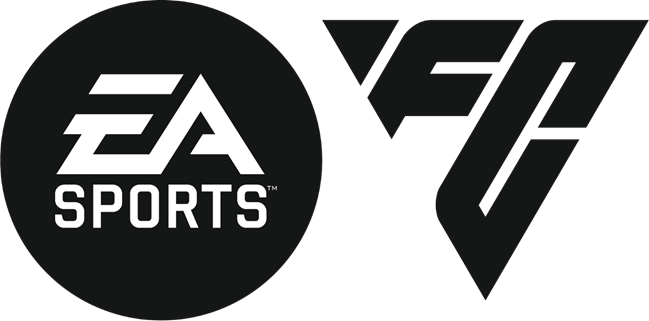EA unveils FIFA's new look and warns of marketing blitz for the ages
Do I not like that.

EA has begun gearing up for the re-branding exercise of the year, as it leaves football's world governing body FIFA in the dust and moves the series on under the brand of EA Sports FC. A new press release and official site has the logo, a bunch of marketing bumpf about the glory of football, and the promise of a first detailed look at the retitled series in July.
"Over the coming days, the EA Sports FC brand will debut in more than 100 matches across the biggest leagues in the world," warns EA. This is going to be the marketing blitz to end all marketing blitzes, and EA's signed up all of the world's major leagues including the Premier League, La Liga, Bundesliga, Serie A, Ligue 1, WSL, NWSL, CONMEBOL and more. In addition to this it's signed up individual teams and players who'll be repping the EA Sports FC life faithfully.
The phrase EA has alighted on for this new era is "a fan-first future." Not quite sure what that means but it's the kind of lip-service that works in football, for the most part, and also slightly deflects from the endless wheelbarrows of cash being poured into this. The press release includes long quotes from various football suits about how wonderful EA Sports FC is going to be, which I'll spare you, but the masochists can find them here.
You thought the logo was just a logo? Think again sport. "The new brand takes its design inspiration directly from the beautiful game and a dominant shape in football culture that represents the sport in multiple dimensions, triangles."
Triangles?!? Not, like, a ball? OK that's funny but EA does have a point, inasmuch as passing triangles are a key part of the game (often considered key to the Dutch 'total football' style of the 1970s), and it goes on to extend this even further: "from the isometric angles of our very first 8-bit experiences and the triangular polygons that make up every pixel of our most modern games, as well the iconic player indicator symbol that appears above every athlete in every match."
Hmm. An important point to make here, which EA kind of dances around, is that players shouldn't be expecting a new game: This will be the kind of iterative improvement over last year's entry typical of the recent FIFA series, but of course that still means it'll be the best football game around by a country mile. One of the few concrete details included in this release was a reference to "the chemistry triangles that exist in Ultimate Team", FIFA's most lucrative mode by a distance, and while of course that was always going to return it does emphasise that, in the hands, this will be evolution rather than revolution.
The end of FIFA as-was does make me weirdly melancholy because, cynicism aside, EA has done such a tremendous job at weaving this videogame series into the real-world sport. The FIFA games have felt for years now like an extension of whatever's going on in the sport and are embedded in the culture. I was at a match several months ago where one of Bath City's players absolutely skied a golden opportunity (sadly very common with the Romans) and some bloke on the terrace shouted "don't press circle so hard!" to chuckles all round.
Keep up to date with the most important stories and the best deals, as picked by the PC Gamer team.
EA Sports FC's position and future success feels assured. FIFA, meanwhile, is all at sea. It reacted to the end of the licensing agreement like a jilted lover, with president Gianni Infantino declaring only a game with the FIFA name would be "THE BEST" (emphasis his) before going on to blow his own kneecaps off with some truly laughable tie-in efforts for the Qatar world cup.

Rich is a games journalist with 15 years' experience, beginning his career on Edge magazine before working for a wide range of outlets, including Ars Technica, Eurogamer, GamesRadar+, Gamespot, the Guardian, IGN, the New Statesman, Polygon, and Vice. He was the editor of Kotaku UK, the UK arm of Kotaku, for three years before joining PC Gamer. He is the author of a Brief History of Video Games, a full history of the medium, which the Midwest Book Review described as "[a] must-read for serious minded game historians and curious video game connoisseurs alike."

